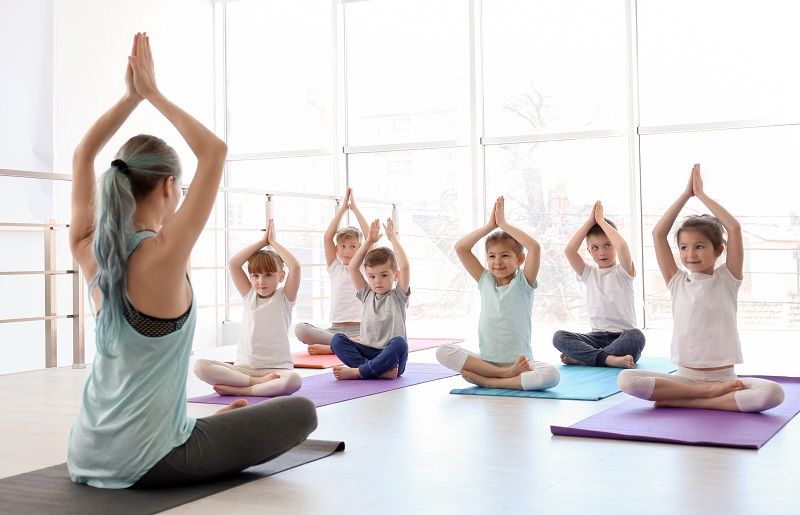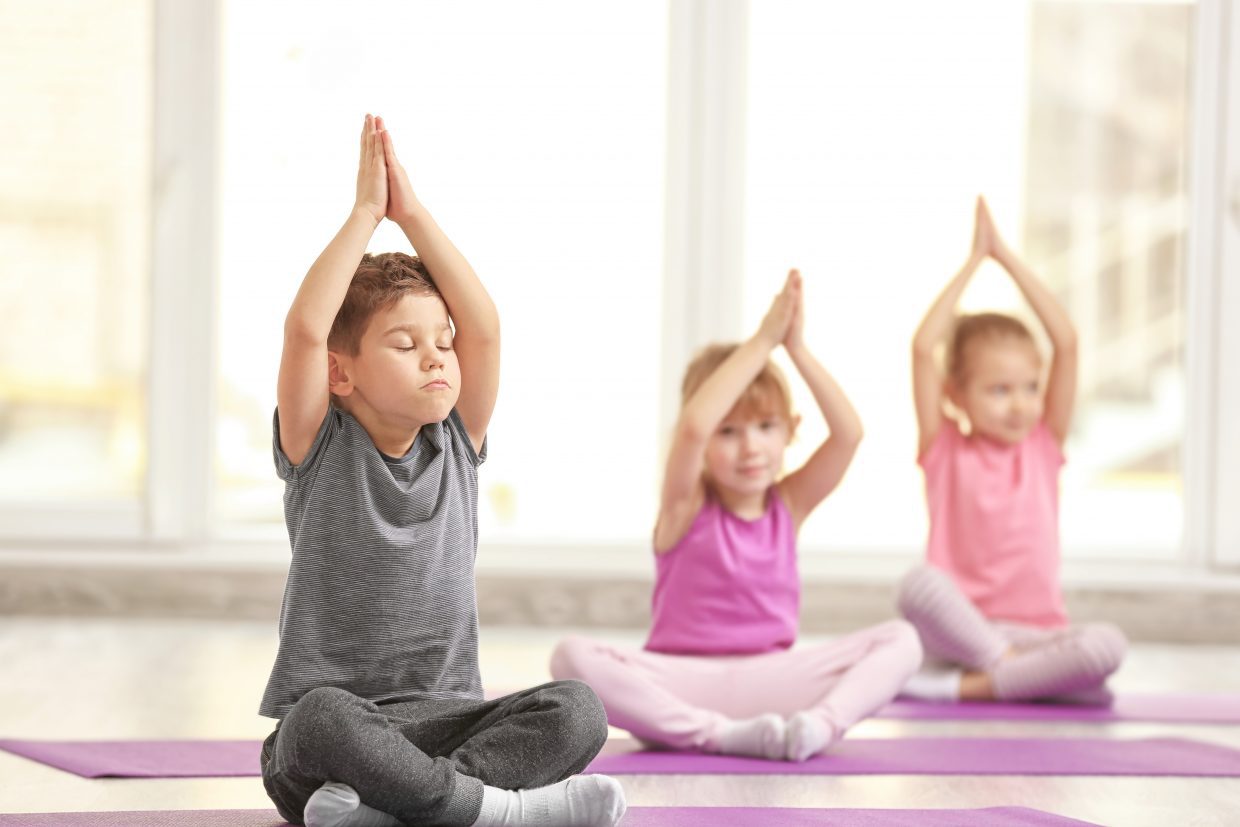Yoga in the Classroom: Learning Healthy Habits
Yoga is a traditional Indian practice, introduced to Western culture by enthusiasts desiring to integrate meditative exercises into a bustling modern society. In sanskrit, yoga means union of body and mind; achieved through focused deep breathing or pranayama, with a series of postures or asanas. Through the years, yoga has evolved from its spiritual origins, gaining popularity as a form of physical exercise to tone muscles and lose weight. Counselors often use meditative or mindfulness techniques when teaching self-awareness skills, ways in which one regulates their thoughts and emotions during stressful situations.
The Benefits of Introducing Yoga to the Classroom
Through practice, deep breathing combined with rhythmic exercises brings awareness to your body, helps to lower your heart rate, reduces blood pressure, relaxes muscles and increases blood flow to the brain. Perhaps this is why other venues, like schools, are incorporating yoga, and making it a part of a child’s everyday experiences in the classroom. In 2005, several international Education and Health interest groups came together to form a non-profit organization, the International Association of School Yoga and Mindfulness, dedicated to integrating mindfulness based programs into K-12 schools. Teaching toddlers yoga practices benefits their brain’s development in a safe, playful way that encourages each child to explore their inner and outer worlds. Learning healthy habits at a young age is important to each child’s individual success at living a fulfilling adult life.
The Healthy Habits Kids Gain from Yoga
- Self-Awareness ~ Holding various postures or asanas helps your child to connect to their inner world and explore thoughts and feelings. This is an important tool for your toddler as they are just beginning to develop a mental picture of who they are in relation to the world.
- Self-Management ~ Yoga cultivates social and emotional learning through mindfulness strategies that aim to strengthen your child’s responses to stressful situations. Exercises like deep breathing and repetition of sayings or mantras, nurture your child’s abilities to self-manage their emotions so they can respond calmly and thoughtfully instead of reactively and defensively.
- Responsible Decision Making ~ Deep breathing or pranayama stills the mind for thoughtful decision-making. It’s important, especially while in early developmental stages, to teach children to listen attentively, so that they develop a habit of making good decisions.
- Physical Benefits ~ Yoga is a great way to stretch tensed bodies! Holding each asana for a short length of time increases your child’s sense of balance and coordination. It also helps to build flexibility and muscle strength!
- Social-Awareness ~ Any teacher or parent knows that teaching a two-year-old how to see a perspective outside their own and empathize with others is a tall order! Yoga is fun and child-friendly at any age, as many of the poses already have silly sounding names. Some studios have adapted traditional poses for children or even given them playful tags such as: Cat Pose, Airplane Pose or Apple–Tree Pose! When children imagine they are stretching like a cat or flying like a plane, they are role-playing. This opens up the door to learning other perspectives and begins the journey of empathizing with others.
Reasons Kids Love Yoga
- It’s playful! Teachers are able to openly engage with children by incorporating sound into classroom yoga techniques. In downward dog, encourage children to bark like Fido, or meow like a cat when stretching like one!
- It’s educational! Yoga is also a unique way to improve memory. Teachers can have students say the alphabet or count while holding a pose. This useful tool is excellent for children struggling to keep still or focus their attention.
Children gain several benefits, in both social and emotional development from yoga in the classroom. It teaches self-care practices meant to lead to inner fulfillment. It aids in strengthening the necessary skills one uses to navigate life’s struggles with greater ease. Animal poses are a playful and imaginative way to introduce meditative practices to children. It fosters the future successes of each child, to creatively teach healthy lifestyles!
Tessa International believes in incorporating yoga into the classroom. Contact Us to learn more at 201.755.5595 or email mvoice@tessais.org.















